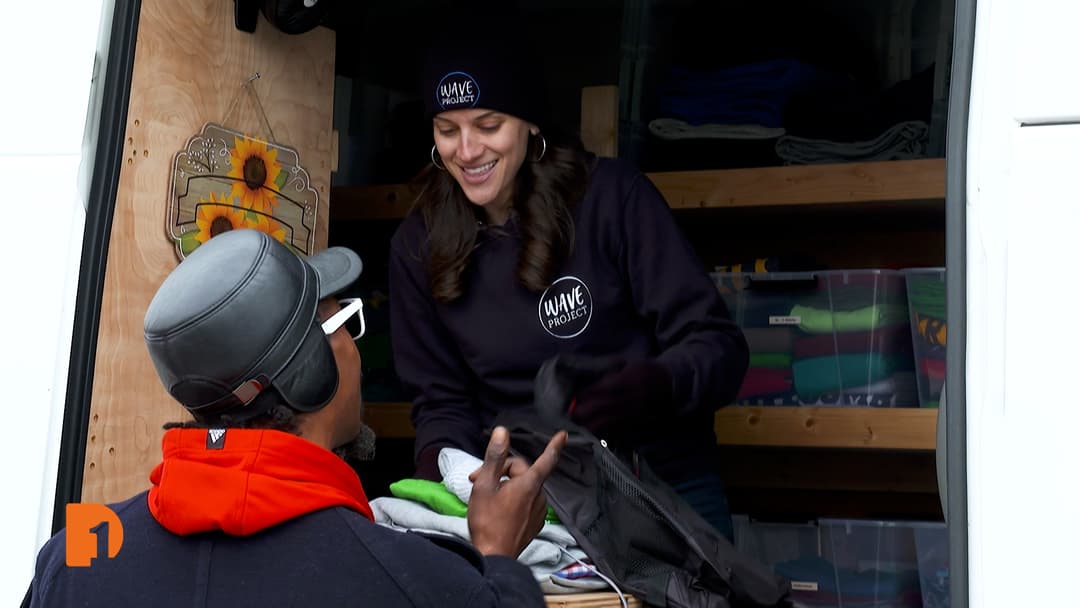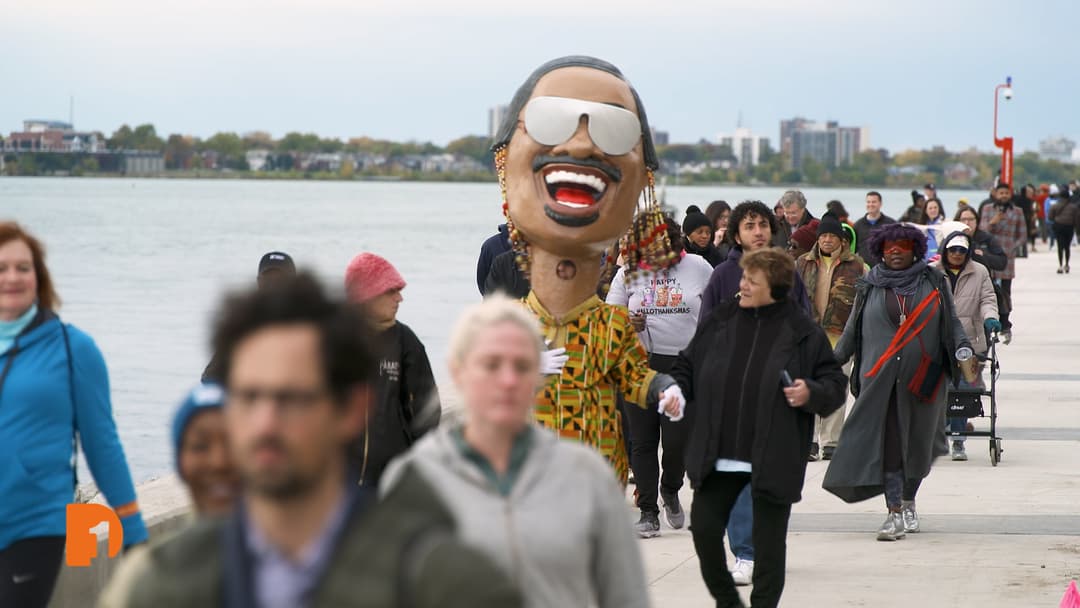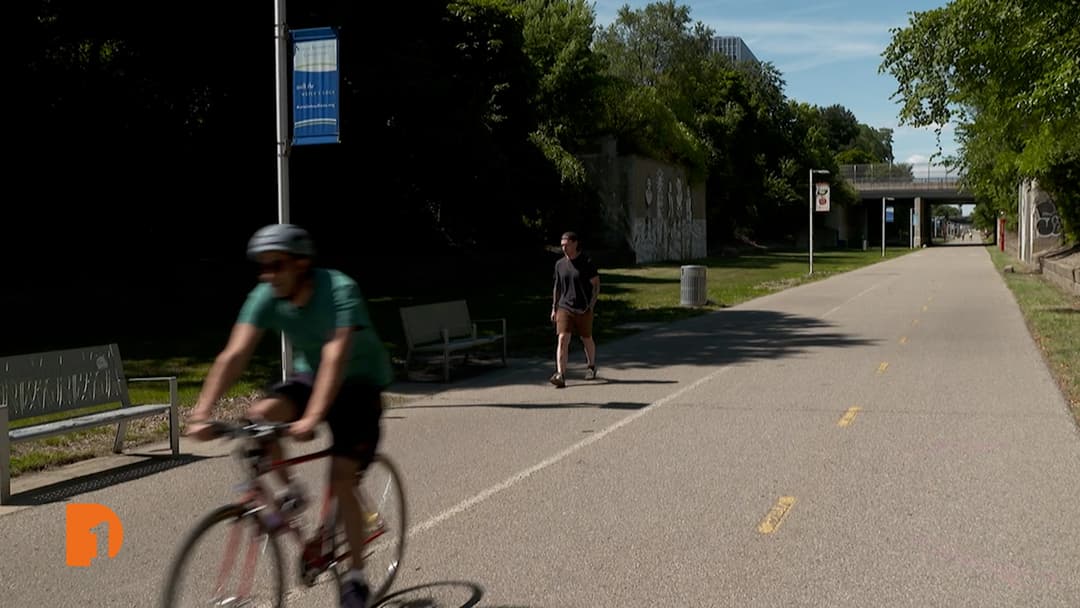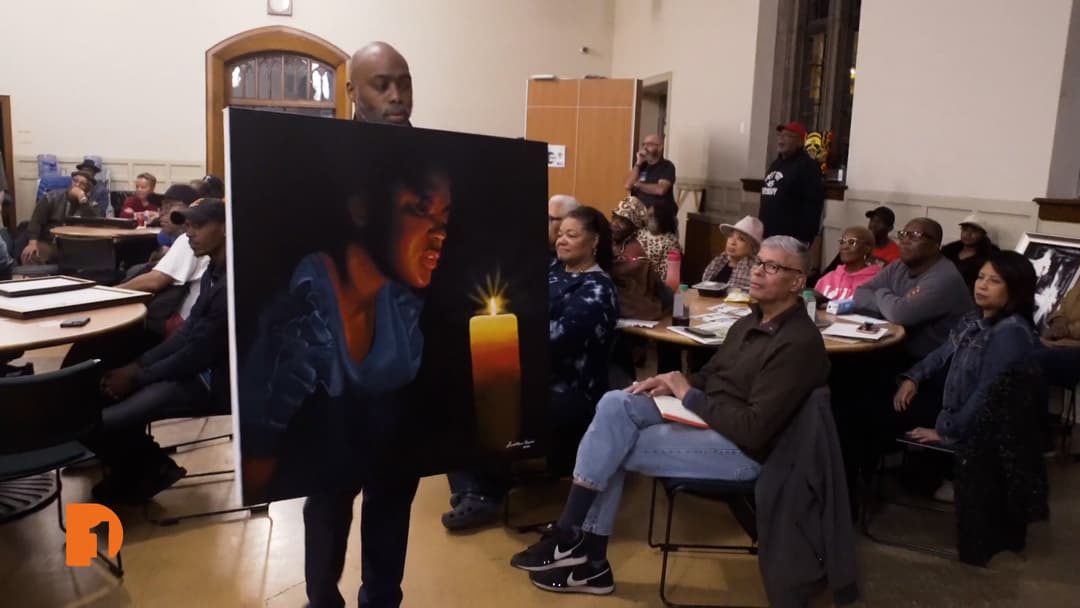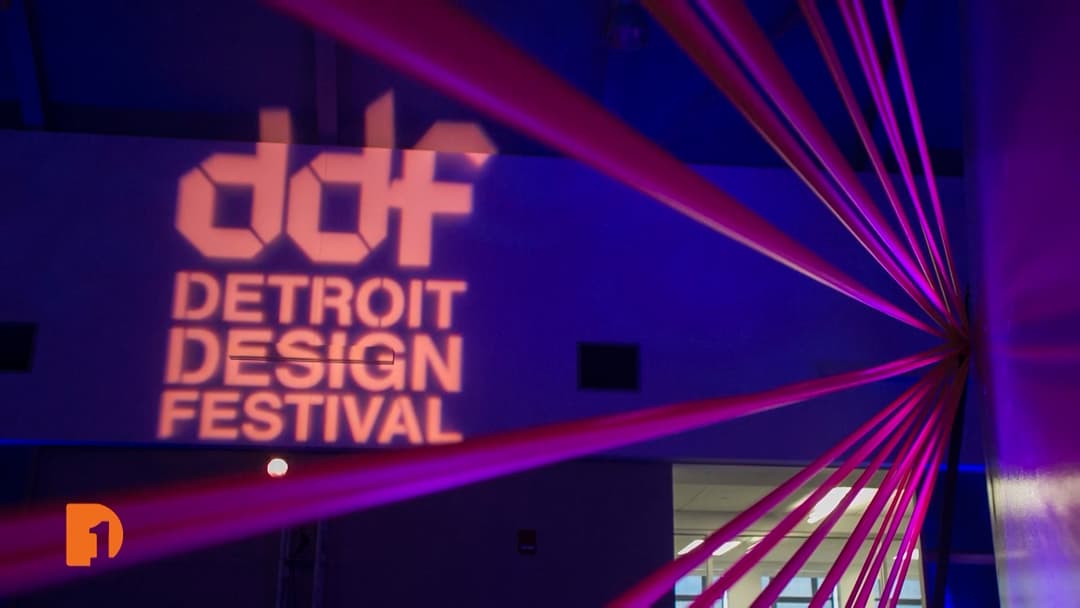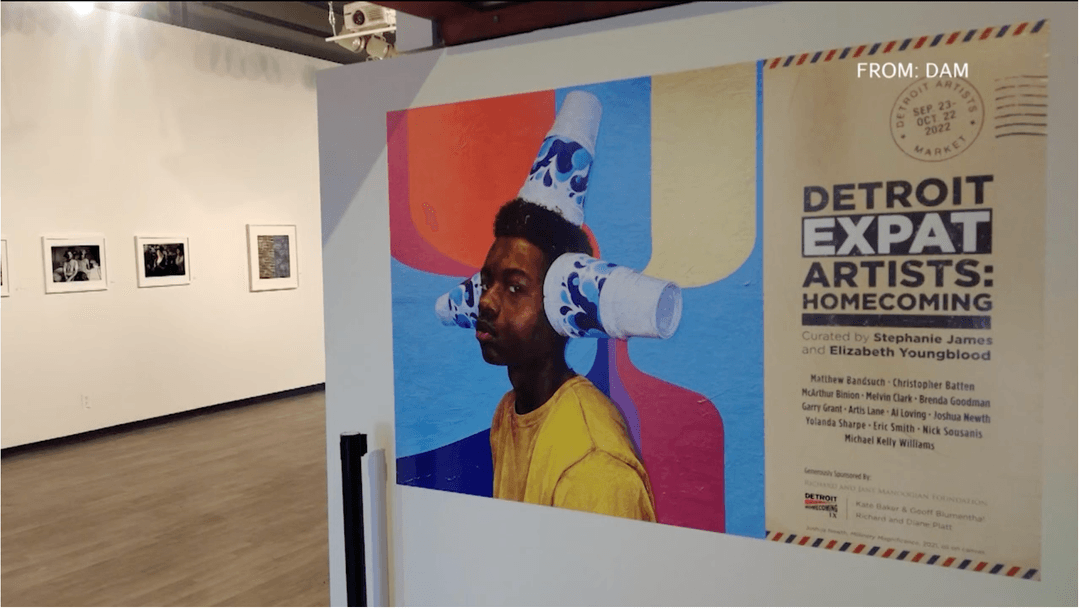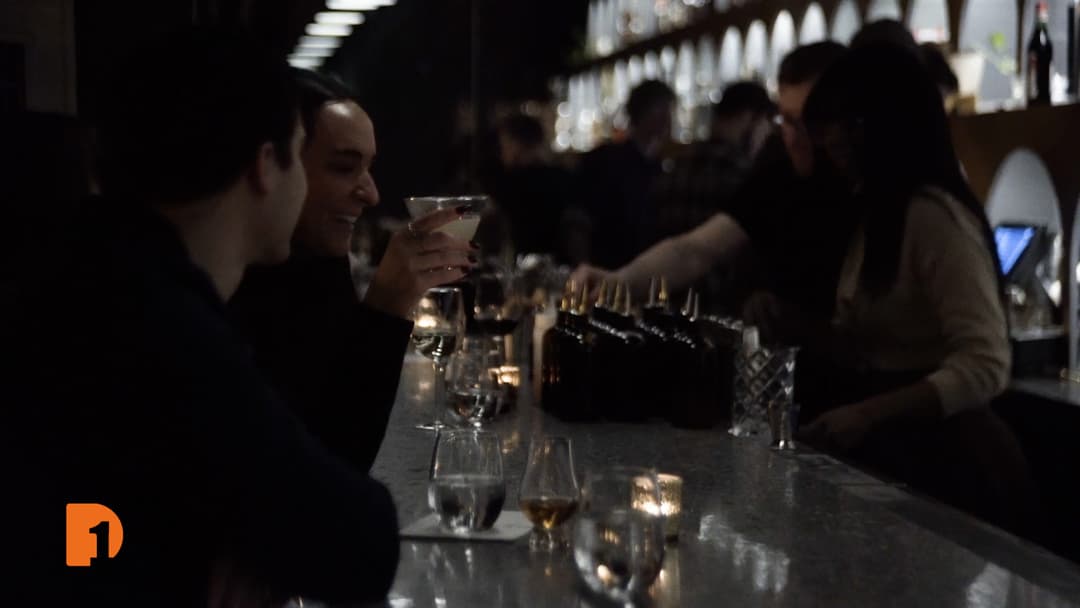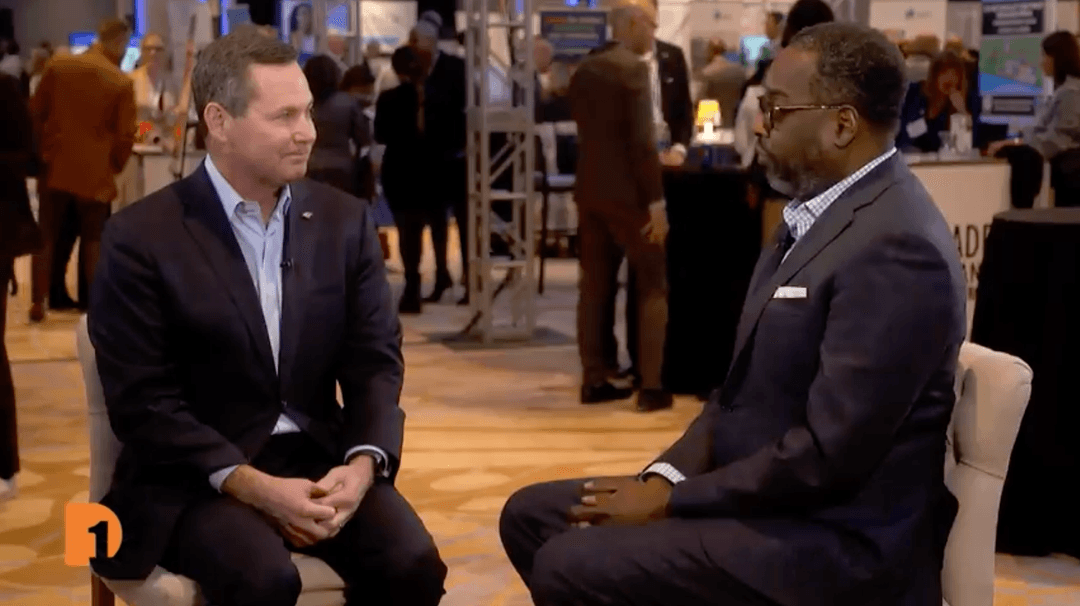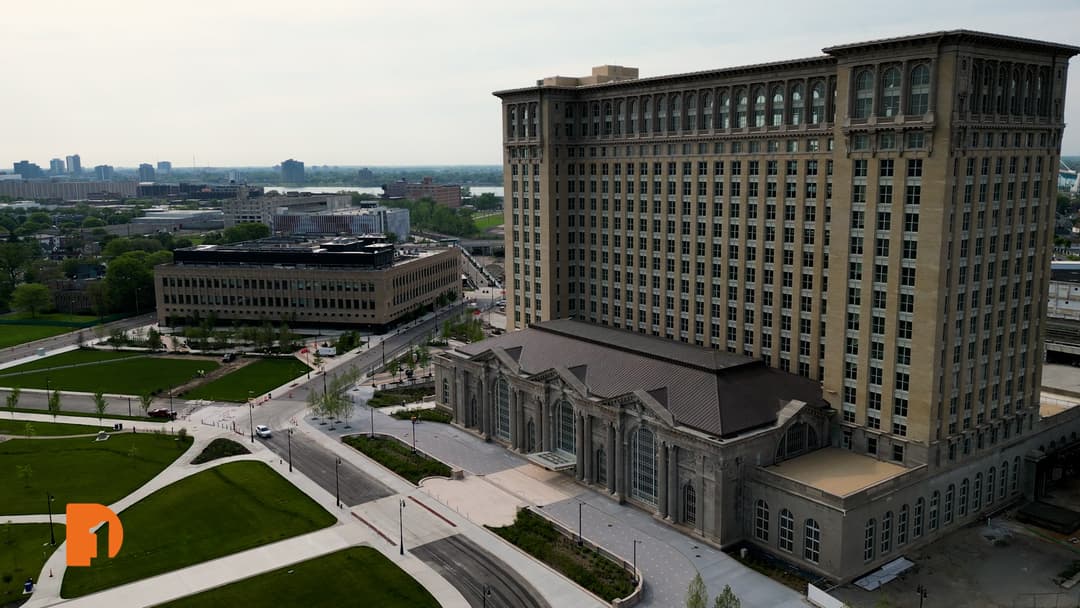Heidelberg 3.0: How a Three-Decade Old Arts Project is Surviving COVID
Jan 24, 2022
Originally posted on January 27, 2021
Heidelberg Project President Jenenne Whitfield described the 36-year-old art project created in east Detroit by artist Tyree Guyton as outdoor, funky, colorful and cool, and that’s exactly what you’ll see walking through the artworks made up of primarily recycled and used materials.
The project isn’t just environmentally conscious though, but a positive economic impact on the city and region too. As of 2019, Whitfield said the Heidelberg project had indirectly contributed roughly $7.5 million in additional revenue. As the project continues to grapple with COVID’s consequences, One Detroit’s Will Glover sat down with Whitfield to talk about how the all-woman organization has fared during the pandemic and their plans for Heidelberg 3.0: an arts district and community.
Watch Now:
[et_pb_video src=”https://www.youtube.com/watch?v=l-pySHg_csw” _builder_version=”4.14.5″ _module_preset=”default” global_colors_info=”{}”]
Full Transcript:
Will Glover, Associate Producer, One Detroit: First things first, let’s introduce people who may not be among the initiated when it comes to the Heidelberg Project, so just give us a little bit of insight as to what the Heidelberg project is, where it is and you know how long it’s been around?
Jenenne Whitfield, President, The Heidelberg Project: Sure. So the Heidelberg Project in Detroit is this outdoor, funky, cool, colorful art environment that’s located in the heart of an urban community on the east side of Detroit. It has been, believe it or not, we’re in our 35th year. It’s hard to believe that Tyree Guyton has been caring for this art installation for the last 35 years, but that’s the case. And it is made up primarily of found and recycled materials.
Jenenne Whitfield: It used to cover a two-block area, but as we go through the metamorphosis of the Heidelberg project now it is changing and we’re focusing now Heidelberg more linear where it’s one street and it goes straight down the street now and it meets at our headquarters. So Heidelberg has always been just this amazing, colorful outdoor art environment that has intrigued the entire world.
Will Glover: The Heidelberg is run completely by women. Is that correct?
Jenenne Whitfield: It is now darling. I mean, for the most part, Tyree Guyton has always been supportive, and I’ve worked with Heidelberg for 27 years. In one of our pieces of promotional materials, Tyree said that when he was a boy, he always gave his money to the women in his family because he know he could depend on them.
Jenenne Whitfield: And I think that in some ways he’s kind of carried that over into the organization and putting me in front to lead us through or to that next evolutionary place or state, which is Heidelberg 3.0, and that that is consisting of Heidelberg now as this arts district arts community. And so it just I want to say it’s not necessarily an effort, it’s it just so happens that we’re all women.
Jenenne Whitfield: So my staff consists of women, but we’re all surrounding Tyree so it’s a good thing. But yeah, it’s all women.
Will Glover: And I do have to point out the fact that it’s never a big deal if it’s an all-male staff. So…
Jenenne Whitfield: No, it’s not, is it?
Will Glover: Like, you said, it just happens to be all women and you’re doing a great job. One of the other things I wanted to talk about was the fact that the Heidelberg project isn’t just an arts destination, and you kind of alluded to it just now when you were talking about, you know, the community space and the interaction with the community, but it also helps economically. Can you talk a little bit about that?
Jenenne Whitfield: Man, as you know this, there was a study done by Williams College in I believe it was 2011 when they did the first study. And what they did was they took a fraction of our visitorship, which we boasted at that time, 200000 people annually. They took a fraction of that being 50000. And what they wanted to just determine is what is the impact economic impact of the Heidelberg project on both the city and the larger Wayne County region.
Jenenne Whitfield: And what they determined in 2011 was that we contributed 3.2 million to the local city and something like 3.7 million to the Wayne County region. Now that was in 2011, but because they were so in awe of the economic power behind the Heidelberg project, they left us on their website, meaning that if you go in and plug the numbers of 2020 today, if you still use that fraction of our visitorship, you will see that well, I’ll say 2019 that’s the last time we checked, you will see that today it’s something like 7.5 million in terms of the…
Jenenne Whitfield: And what that translates into is that the people that are coming to see Heidelberg are also coming to see other places. They’re spending more time in Detroit, they’re spending money in restaurants. Now keep in mind, this was all before Covid, right. So you can see that the innovation that Tyree came up with here in the city of Detroit really had more of an impact than just art and creativity, but it also affected our economy.
Will Glover: One of the things that I saw that you guys recently got was an award as one of the leading culture destinations. Tell me a little bit about that.
Jenenne Whitfield: Man. That was crazy that came right before the pandemic. And what happened is, you know, we were nominated for best cultural activation and we were nominated on a worldwide scale. We— our competitors was the oh my gosh, I’m not going to remember this, but there is a House of Blues or something like that in Toronto and then another cultural institution in South Africa and Heidelberg won.
Jenenne Whitfield: And I actually flew to Berlin to accept the award in person. And it was just it gave us an opportunity in Berlin to come together with other cultural makers around the world who were doing things that were innovative and cutting edge. So it was incredible. But I have to admit that Covid put a damper on it because look, while I was in Berlin, I’m like, I need to get home because this is not good. So..
Will Glover: Yeah, I’m sure.
Jenenne Whitfield: But it was amazing to have that kind of acknowledgment. And, you know, we’ve got awards racked up that people just would not believe.
Will Glover: Obviously, it means a lot to you. Can you just tell me a little bit about what it actually means to you personally?
Jenenne Whitfield: Sure, I will tell you in the way of the experiment that the artists performed with me. He asked me if I’d help him and I said, no, so I don’t even understand what you’re doing. And so then he asked me if he could do a little experiment with me, and I said, OK. So he blindfolded me. He gave me paint, crayons, paper, pencil, all of this, and I sat on the floor like a child, blindfolded.
Jenenne Whitfield: And he said, now paint what you see. And what I painted after I finished now, I’m completely inhibited right. I got no reference, I can’t see. So I just have fun. And there’s a very symbolic message in that, and so that painting that I created, I framed and I I hang it on my wall it’s with me all the time because it is a reminder that we must challenge ourselves to go to a place that is often uncomfortable in order to grow.
Jenenne Whitfield: See if we’re just complacent and settled in what we already know, then how do you innovate? How do you challenge the status quo? How do you go to the next level? Heidelberg Project has taught me what it means to go beyond and to aspire to something that you didn’t even know you could.
Will Glover: And for people who want to help contribute financially or they just want to experience the Heidelberg project, where can they go to do that?
Jenenne Whitfield: Oh, they can go visit our website. We have a very, very active website and social media platform. We’re on all the channels, Facebook, Twitter, Instagram and they can also just email information at Heidelberg.org. Everything is Heidelberg.org. That’s where you’ll find us. That’s where you can get in contact with us. And then we’re right in the community. So because we do have a lot of space, you can also knock on the door.
Subscribe to One Detroit’s YouTube Channel & Don’t miss One Detroit Mondays and Thursdays at 7:30 p.m. on Detroit PBS, WTVS-Channel 56.
Catch the daily conversations on our website, Facebook, Twitter @DPTVOneDetroit, and Instagram @One.Detroit
View Past Episodes >
Watch One Detroit every Monday and Thursday at 7:30 p.m. ET on Detroit Public TV on Detroit Public TV, WTVS-Channel 56.
Stay Connected
Subscribe to One Detroit’s YouTube Channel.
Catch the daily conversations on our website, Facebook, Twitter, and Instagram @detroitperforms
Related Posts
Leave a Reply
Your email address will not be published. Required fields are marked*
